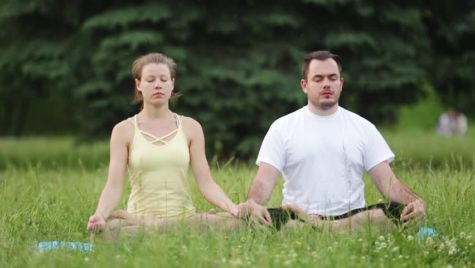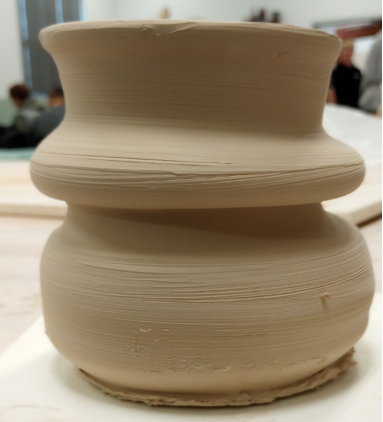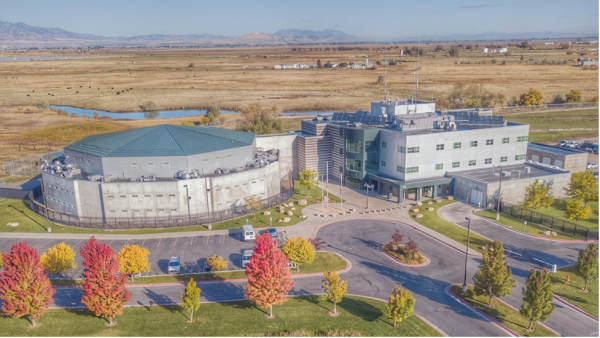What Would Happen if You Meditated for a Month?
October 26, 2017
Meditation by definition is contemplating life as a whole and mindfulness. Which means a person reflecting on life and the things associated with daily life and what it means to live. Practiced in five religions, it is meant to help a person achieve mindfulness. Hinduism, Buddhism, Judaism, Christianity, and Islam all practice forms of meditation. In fact it is in every aspect of Indian spiritual life. However, if you aren’t typically someone who is interested in spiritual life, meditation is a form of mental healing. Meditation has shown to improve things such as anxiety, depression, ADHD, and stress. It can also improve mood, and focus. There’s a million and one ways that meditation can improve daily life. And although not every person actively meditates, very few people have any reservations or negativity towards the activity as a whole. “I mean I don’t meditate but if it works for you, do it. ” senior Melissa Sanchez said.
Scientific studies show that 90% of happiness does NOT depend on the external circumstances but on the way our brain processes whatever is going on in our life at any given moment. Quite a mind boggling statement, no? When someone or something upsets you, there’s usually more to your mood. If you act out in anger, you are probably already stressed for some other reason and that build up of anger and stress can be toxic on relationships.Think of a time when you came home from a hard day at work or school and got upset with a family member or a friend for an absolutely ridiculous reason. When we are stressed out, cognitive processes that are needed for harmonious relationships – empathy, self-regulation, rational information-processing, etc – simply shut down. But, meditation affects your cognitive process in such a way that you are happier as a whole and stress comes down because it has a non physical outlet; meaning that your mood is boosted and your relationships with family, friends, and partner wont suffer. “Meditation is pretty great, I’ve done it before ” said senior Natasha Hoth
But what actually changes in your body when you meditate? What if I don’t have time? Brain imaging techniques are revealing that this ancient practice can profoundly change the way different regions of the brain communicate with each other – and therefore how we think – permanently. Mindfulness meditation is associated with a decreased volume of grey matter in the amygdala, the key stress responding region of the brain. As the amygdala shrinks, the pre-frontal cortex, responsible for higher thinking such as awareness and concentration, becomes thicker. Meaning that your brains ‘fight or flight’ response shrinks. Now all of this physical stuff won’t happen right away, but after a few weeks of daily meditation you will see these improvements. There are also many variations of meditation.
A suprising amount of youths participate in meditation including students at Ridgeline Highschool. I went around the school asking groups of students what they thought about meditation as a whole and this is what they said; “ I love meditation ” freshman Sydnee Seeholder. And when I asked why they did it and freshman Trevor Mumford said “No joke it actually really chills a person out ”.
How to Meditate:

1. If you wanted to start meditation, you will first need time. Set aside about fifteen minutes of time to meditate and sit down on a flat surface cross legged. Next, analyze how you feel. Are you stressed? anxious? Make sure that you acknowledge your feelings and assure yourself that your feelings are okay to have.
2. Count your breaths, don’t worry about how you think you should be breathing but instead just count your breaths when you inhale and exhale, this should be relaxing to you.
3. Dont worry about clearing your mind. Clearing the mind can happen, however it is not the ‘goal’ of meditation. Think about how your mind wanders. Try to focus on your wandering mind try to gain an understanding of how your mind works and think about yourself with a non-critical attitude.
4. Do a body scan. Think about your body and focus your thoughts on one spot at a time. Start by wiggling your toes in your shoes and think about how your feet feel and how heavy they are. Move your mind to the different parts of your body keeping your mind focused.
5. Notice the light, sounds, and energy around you. After about a week of breathing, take notice of the light that surrounds you, just keep your eyes focused on one spot and notice the light in the room you’re in. Another day focus on the sounds you can hear. Such as your breathing or a passing car think about what you hear. And another day you could try to think about the energy in the room, including the light and sound. Focus on feeling rather than the physical world.
6. Commit yourself for at least a month. You wont get any enlightenment or change after trying meditation just once. All things take time.
7. Smile when you’re done. Be grateful that you had this time to yourself and that you stuck to your commitment today, and that you took the time to get to know yourself because you want to have a healthy mindset and an appreciation for the life you have and the peace and mindfulness you want to have.











